-
Posts
40 -
Joined
-
Last visited
Posts posted by waazdakka
-
-
That's the ESXI version I used, but I didn't installed the HPE addon pack, I'll try tomorrow but I'm not sure it will change anything.
QuoteHPE Addon for ESXi 8.0U2
Contains:
Name--Version
--------------------------- -----------------------
Broadcom-bnxt-Net-RoCE--226.0.221.0-1OEM.800.1.0.20613240
Intel-Volume-Mgmt-Device--3.2.0.1008-1OEM.800.1.0.20613240
Intel-i40en--2.4.2.0-1OEM.700.1.0.15843807
Intel-icen--1.11.3.0-1OEM.800.1.0.20613240
Intel-igbn--1.11.2.0-1OEM.800.1.0.20613240
Intel-ixgben--1.15.1.0-1OEM.800.1.0.20613240
MRVL-E3-Ethernet-iSCSI-FCoE--3.0.221.0-1OEM.700.1.0.15843807
MRVL-E4-CNA-Driver-Bundle--6.0.367.0-1OEM.800.1.0.20613240
MRVL-QLogic-FC--5.4.81.2-1OEM.800.1.0.20613240
Mellanox-MFT-Tools--4.25.0.802-1OEM.802.0.0.21974771
Mellanox-NATIVE-NMST--4.25.0.802-1OEM.802.0.0.21974771
Microchip-smartpqi--80.4532.0.108-1OEM.800.1.0.20613240
amsdComponent--701.11.9.5.16-1
amsdvComponent--701.11.5.0.2-1
fc-enablement-component--800.3.9.0.30-1
hpe-upgrade-component--901.2.0.5-1OEM.800.0.0.20172892
ilo-driver--700.10.8.1.6-1OEM.700.1.0.15843807
ilorest-component--800.4.5.0.0.4-20613240
ssacli2-component--6.25.9.0-8.0.0
sutComponent--800.4.5.0.22-0But I'm pretty sure the issue is on the server side since I found some "interesting" elements on the technical sheets:
The Storage Controller controller is an Intel VROC SATA Software RAID. Maybe I have to dig on how to deactivate it for good, IF it's possible since I just discovered on the specs that...QuoteIntel VROC SATA RAID supports Windows Server and Linux but does not support VMware.
🤦♂️OMG.
But I'm not sure on how VROC works with the "Essential RAID Controller: HPE Smart Array E208i-p SR Gen10 Controller". I have to try some BIOS settings I guess.
Anyway, I'm a it disapointed of the lack of support between the different components. As I said, I'm using a QNAP QM2-2P10G1TB with a 10Gb port and the 10 Gb chipset,
AQC113C, is not supported by VMware and will probably never be...
I guess I missed some critical points when building this 🤣
-
Hello!
I'm facing a lot of issue with my new hardware... So I'm testing some setups but with no success for now

I just received an HPE Proliant Microserver gen10+ v2 to which I added a QNAP M.2 card (the QM2-2P10G1TB, 2 M.2 NVMe slots and a 10Gb ethernet port).
I put a SSD on one of the NVMe port, and have 4 disks on the native SATA's ports.
First of all I wanted to install Arc on an ESXI VM, and I successfully installed ESXI on the M.2 SSD, but I can't get my disks in passthrough, so I tried some other configurations.
So, I tested to install Arc in baremetal. I removed all 4 SATA drives to install DSM on the M.2 SSD.
First steps went well but when the DSM installation arrived... The NVMe disk is missing (while ESXI hadn't any issue seeing it...)
Am I missing something? Do I need to configure anything special on the BIOS? Is the NVMe card not adapted to my configuration?
(And maybe there is another topic I should move this subject to?)
Thanks a lot!!
-
Hmm I've found some leads which could explain my issue.
I'm using a QM2-2P10G1TB QNAP card (2 NVMe + 10Gb) and My ESXI is installed on the NVMe disk.
I found someone who seems to have the same issue:And I don't have any IOMMU option on my BIOS (I'm using a HPE Proliant Microserver Gen10+ v2)
-
So I entered
lspci -v | grep "Class 0106" -B 1The result of the commande gives me
0000:00:17.0 Mass storage controller SATA controller: Intel Corporation Device 43d2 Class 0106: 8086:43d2I added this line at the end of the file /etc/vmware/passthru.map to add the controller into passtrough list
8086 43d2 d3d0 falseSo the final file looks like this:
# Intel 82579LM Gig NIC can be reset with d3d0 8086 1502 d3d0 default # Intel 82598 10Gig cards can be reset with d3d0 8086 10b6 d3d0 default 8086 10c6 d3d0 default 8086 10c7 d3d0 default 8086 10c8 d3d0 default 8086 10dd d3d0 default # Broadcom 57710/57711/57712 10Gig cards are not shareable 14e4 164e default false 14e4 164f default false 14e4 1650 default false 14e4 1662 link false # Qlogic 8Gb FC card can not be shared 1077 2532 default false # LSILogic 1068 based SAS controllers 1000 0056 d3d0 default 1000 0058 d3d0 default # NVIDIA (FLR issue on Ampere and Hopper GPUs) 10de ffff bridge false # AMD FCH SATA Controller [AHCI mode] 1022 7901 d3d0 default 8086 43d2 d3d0 falseBefore activating "Relay" on the manage / hardware tab, I do have all my disks but all the disks disappear when I activate it and reboot the server.
BUT... I do have an error when activating relay:
And if I hit refresh, the message is different...
-
Well I followed the tutorial but the 2 disks disappeared 🤣 (and the SATA controller is still here)
I think I made a mistake somewhere..To be clear, I need to add both part of configuration, or just the first one? (Obviously personnalized with the right vendor ID)
And if I need to put the second part, is there not a problem on the second line, where there is not the device ID mentionned? And do I need to remove the "(in hex) (ffff can be used for wildchar match)" part since it seems to be just a comment?
Thanks a lot... (I feel like a zero 🤦♂️)
-
On 11/26/2023 at 1:08 PM, dj_nsk said:
not really. With Arc:
- Skip the "Preparing the TCRP Image" section - just download the latest release arc-XXX.vmdk-flat.zip and unzip it
- ...
-
"Select Add hard disk (existing hard disk) and choose
the TCRP vmdk created in the previous step" Upload (upload alternately both files received in step 1) - arc.vmdk - Select - ...
- Skip the "System-Specific Parameters and SATABOOT" section
-
Boot to Arc configuration menu, choose model and DSM version, Enter, Enter, ... Ok Rebooting to DSM

Thanks, I will test all of this tonight!!
-
Hello dj_nsk,
If I have well understood, if I want to use ARC to automate the installation on ESXI, I just have to follow the exact same tutorial than for the classic Redpill (configuring SATA controllers, gunzip the vmdk etc., until booting on Redpill?)
Thanks!
-
Ok ! Well I'm confused now if I'm using VM or going back to baremetal...
-
Oh wow so it's a full passthrough and I will get all informations about HDD (SMART, serials etc) directly into DSM?
Are they any pro and cons about this configuration?
Thanks a lot!!!
-
Hello,
You have really observed a performance issue with ESXI? With data transfer? Or raw power?
-
Hello guys,
Just an new question / update on the disks sleep with ESXI, but in a different configuration than I used on this topic:
I just bought an HPE Microserver gen10+ v2 and I think I won't use a SAS card since I don't need a lot of storage, so the setup will be like this:
- 1 PCIe card with 2 NVMe drives: 1 for the ESXI and the datastore, I have not decided yet for what I'm going to use the second NVMe slot
- 4 HDD on the SATA bays
I'm going to install ESXI on 1 SSD NVme of the PCIe card, with the Synology VM (And probably other VMs, but not using the HDD)
I will to configure the 4 HDD in passthrough to manage the RAID with Synology.
Since it's directly connected to the mainboard, do I need to configure anything else to get a real passthrough? I can perform multiple installations to test it but I'm sure you'll be able to provide a lot of good advices

Thanks for your help!
-
Hello!
Sorry by advance for the noob question but... I'm looking for a step-by-step upgrade guide to upgrade my DSM (I'm on DSM 7.1.1-42962 Update 1, and I guess 7.2 is now supported by TCRP?) but I can't find how to upgrade it without crashing my server and start again ^^' I really need to test this on a preprod server, I know...
Could you point me to the right direction? 😅😅😅
Thaaaanks!
-
Wow thanks, was stupid to not test this... AME activated, it seems I don't need to change my serial eventually.. Thanks again!

(I guess I don't have AAC since I didn't install Audio Station, but I have a doubt on the version?)
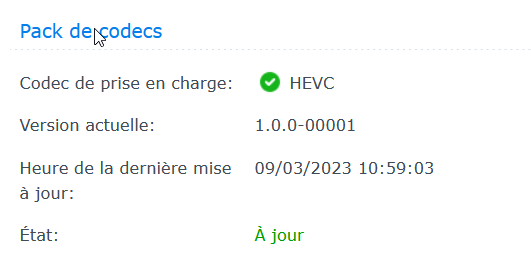
-
Wow thanks for the tip. I guess I have the possibility to use the passthrough mode:
And if I follow your advices, I have to rebuild everything from scratch I guess,
Since I'm on my production NAS, I have to backup everything, move everything... not for today ^^' I have to test all of this on another machine first 😅When you say I won't be able to revert to RDM, what case do you reffer to?
Are there pros and cons to the passthrough mode and RDM mode?
Thanks again for all your help!
-
Hello dj_nsk,
Thanks for your answer, I didn't even thought about this possibility... But I'm not sure how to achieve this. My SAS controller is in IT mode, but I'm not confident on how to present my SAS controller to the VM in passthrough mode

(I saw some tips in this KB but not sure it's relevant https://kb.vmware.com/s/article/1010789 ) -
Hello!
Up? 😅
-
Nice, thanks for the fast answer! (For those who search for it:
But what about finding a valid serial? I can't find any serial generator for the DS3622XS+

Or I can make a new VM installation to get RedPill again and access to the integrate seralizer 😂
-
Hello!
Hmm it seems I don't have a valid serial (impossible to add it to my Synology Account), because it has been generated by RedPill at start and I don't have any idea how to change it for a valid one. (And I'm not even sure that I CAN change it since I use a DS3622+ ESXI installation).
I tried the script anyway but I obtain:
./ame.py: line 1: import: command not found ./ame.py: line 2: import: command not found ./ame.py: line 3: $'\r': command not found ./ame.py: line 4: r: command not found ./ame.py: line 5: syntax error near unexpected token `(' ./ame.py: line 5: `s = [(0x1F28, 0), (0x48F5, 1), (0x4921, 1), (0x4953, 1), (0x4'75, 1), (0x9AC8, 2)]Some help? 😥
Thanks!!!
-
Hello,
I just succeed to install my Xpenology using TCRP on ESXI 6.7 (due to hardware limitation, my SAS card isn't supported by ESXI 7+), using my raw disks directly into DSM (2 disks RAID managed by DSM, 2 disk in basic mode).
I tried to activate the hibernation to the unused disks from DSM, but without success, and since the firmwares of the disks are generated by ESXI, I'm looking if I have something to manage on the ESXI interface to allow the disks to sleep...
Thanks!! -
Yes I've read your post several times, it has been a nice source of reflection, thanks! (But I obviously missed the part where the P222 runs this hot and induce that much noise 😭)
Well since the heat and noise has been rejected by the person I'm living with, I'm trying another combination:I saw my LSI 9240-8i (apparently flashed on IT mode but without SAS address) was only supported until ESXI 6.7 (https://www.vmware.com/resources/compatibility/detail.php?deviceCategory=io&productid=35108), so I reinstalled the 6.7 then successfully the TCRP Xpenology 🥳
I could have immediately my raw disks added to the Xpenology VM and manage my RAID into DSM.
Don't know if I have to do something with the drivers or consider TCRP had all of them correctly installed? I ddidn't succeed to have my hard drives hibernate for now, I assume I missed something 😅
-
 1
1
-
-
Hello all!
I just put the card in my Gen8 Microserver, and I was wondering... 90°C for the P222 without any disk attached? I read everywhere it's kinda "normal" but is it the same thing when using IT mode?
😱 I can add fans but wtf? iLO is in 2.81 (and I found a guy who succeed to lower the temp downgrading iLO in 2.50 then reverting to the last firwmare, but I'm stuck when trying to downgrade mine), and I think I suceed to flash the P222 to the last firmware but I don't have any idea how to check it's in the right to IT mode...
And for now the noise is not WAF at all, so I have to figure out another solution 😭
I'm giving a try to an old LSI 9240-8i I never used (so it's in the state I bought it), but I'm not sure of how to configure it. It appears it already has the IT firmware if I'm correct?
But it hasn't SAS address, and I don't have a desktop computer with EFI Shell with me now... Could it work like this? (I put a small SSD on the card to see if the disk is seen...)
Thanks for your help!!
-
Hello! The RAID card has finally arrived!
Nasty things are coming... But do I need the memory extension card and its battery attached if I just want to use software RAID in DSM?
(I will probably have tons of question about updating the card, modifying it in IT mode... 😅)
Thaaaanks!
-
Sold! Thanks for all you tips, I guess I'll update this topic when I get my card! 😁
-
Thanks for your fast answer!
Well I found your topic few minutes later and found it very interesting! I obviously lack of some knowledge about virtualization and different controllers modes, and not sure of the difference between HBA and IT mode 😅
I found another topic about the HBA cards, talking about the heat / noise of the P222, replaced by a LSI 9211-8i. I don't know which one to chose since I didn't do any test for now, but which one would you recommend?
And I'm not sure why the P222 works with a battery but the LSI 9211 don't (answering to myself: because I don't need to use the battery and the 512Mo card if I let DSM manage the RAID I guess?)
Sooo let's summup with your advices: I have to buy a SAS card (P222 or LSI), flash it into IT mode (have some digging to find out how to achieve that 😁), plug on it my drives I want to see in DSM and with which I'll manage my RAID, put my SSD with ESXI + DSM on the SAS onboard connector.Let's do this 😅



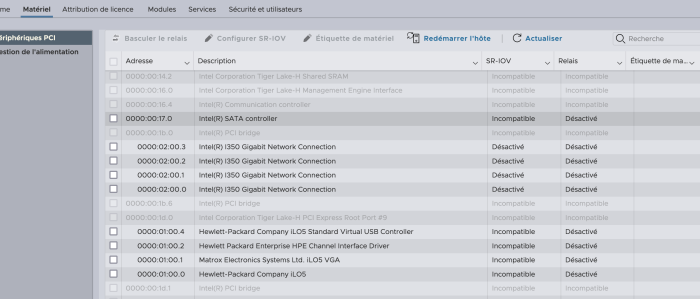




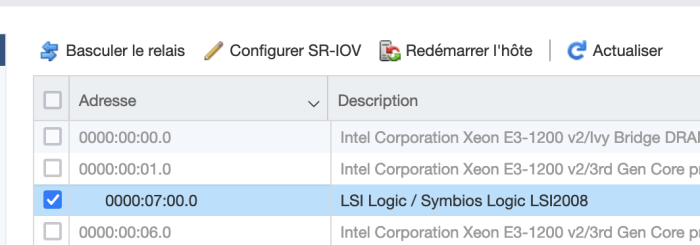
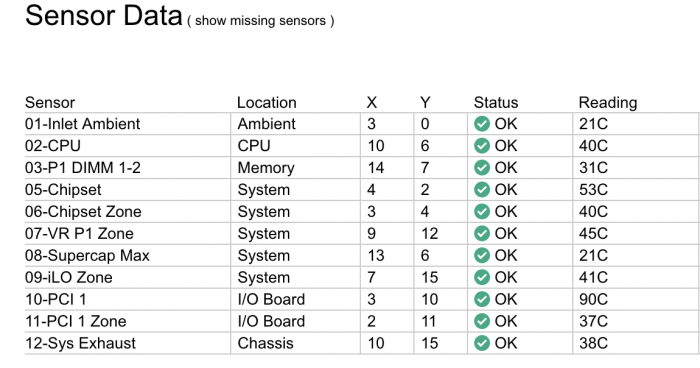
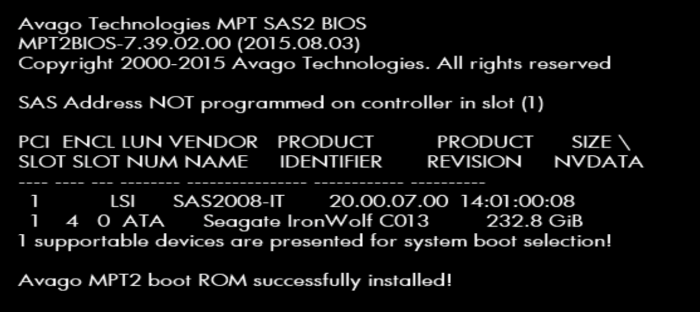
How to make DSM7's qemu-guest-agent work correctly in the Proxmox VE virtual machine to respond to shutdown and restart requests from pve
in Additional Compiled Modules
Posted
Hello !
Eh, are you really confident about this repo? 😕